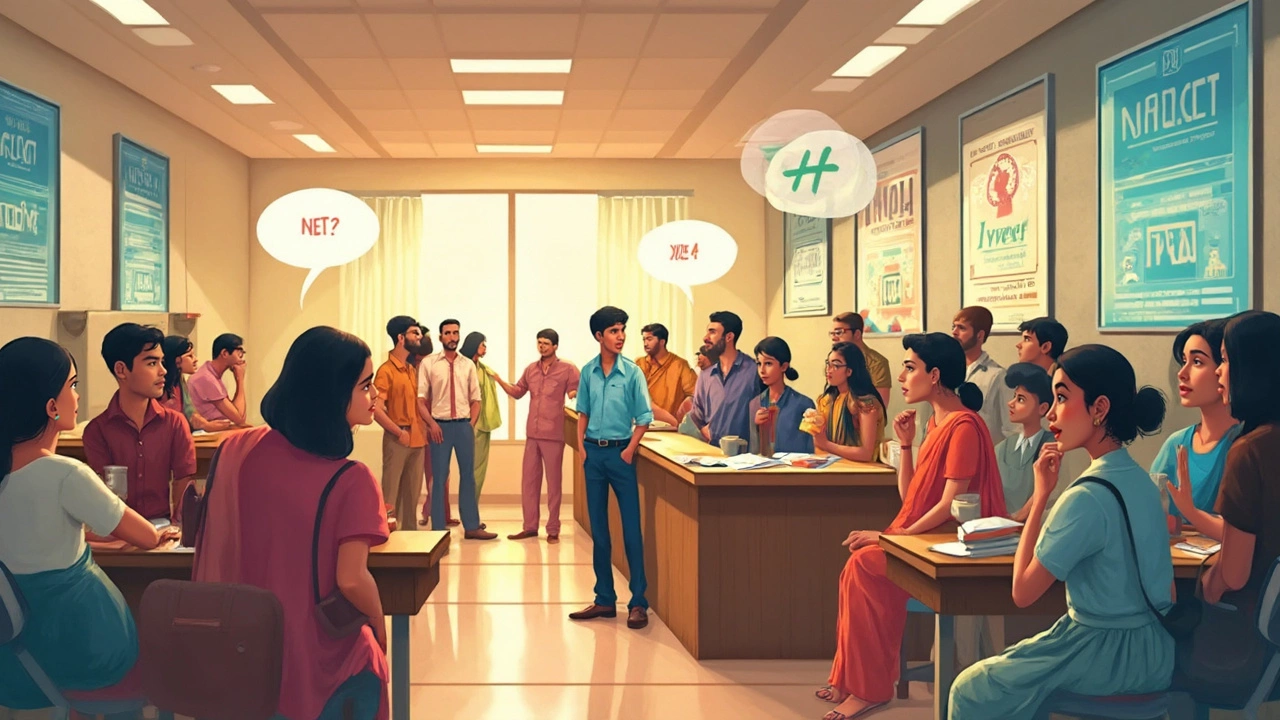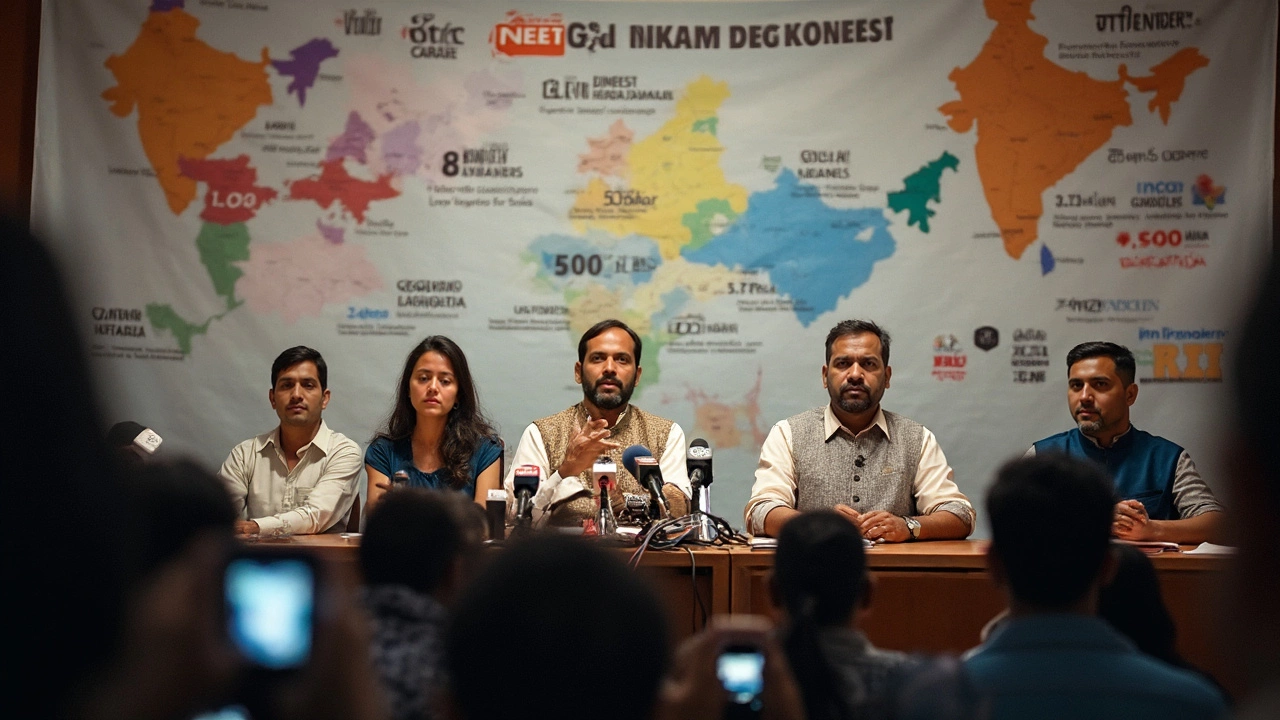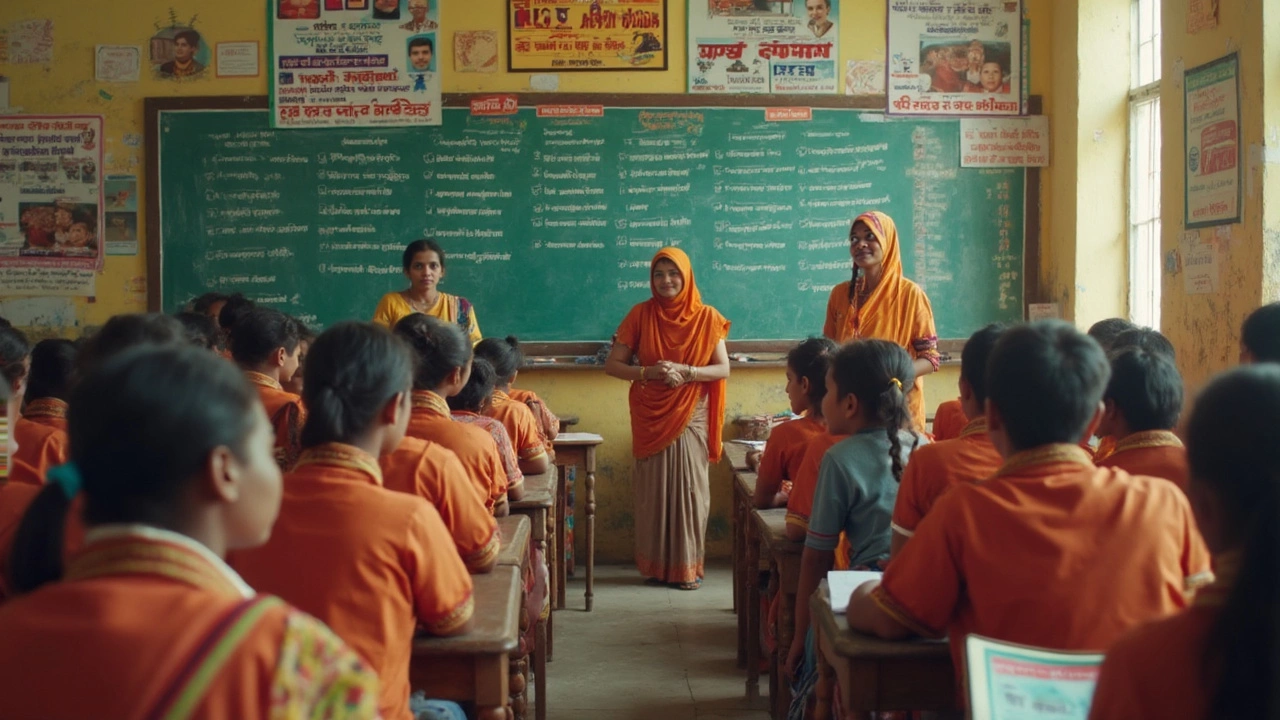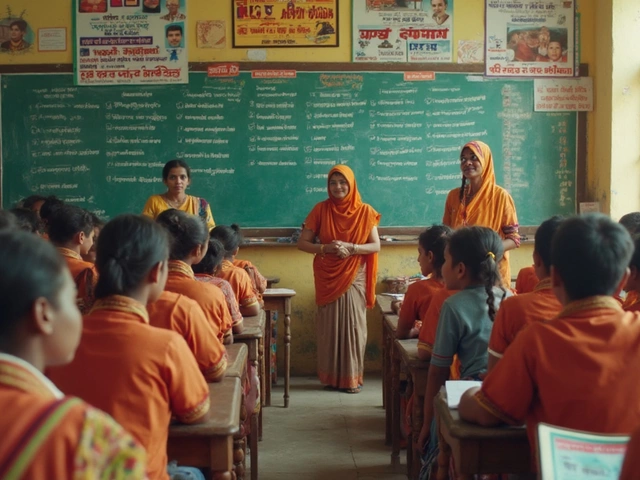Think NEET is accepted everywhere in India? Not even close. Plenty of state governments have voiced serious concerns, and it’s not just empty talk—it’s shaped laws, court battles, and what happens in classrooms. For a student or a parent, figuring out where your state stands can make a real difference in planning for medical admissions and choosing coaching.
So, which states are saying no to NEET, and why? It’s mostly about fairness and equal opportunity. Local boards and languages sometimes get sidelined, leaving students scrambling to keep up. Some states claim NEET favors urban kids and those who can afford expensive coaching. That’s a huge issue if you’re from a rural background, right?
And it's not just theory—look at what's going on in Tamil Nadu. This state has made national headlines (again and again) over its opposition to NEET. But don’t think it’s the only one with objections. Other states have jumped in with their own twists, debates, and even legal action. The game is complicated, but understanding who’s against NEET and why will save you time, money, and a lot of stress if you’re prepping for medical entrance.
- Why Do Some States Oppose NEET?
- Tamil Nadu: The Epicenter of Resistance
- Other States Raising Red Flags
- How This Affects Students and Coaching
- Smart Tips for Students in Anti-NEET States
Why Do Some States Oppose NEET?
The National Eligibility cum Entrance Test (NEET) was supposed to even the playing field for medical admissions across India. In reality, though, some states feel it stacks the odds against their own students. Why the friction?
First up: local languages. NEET is offered in English, Hindi, and just a handful of regional languages. Many students in states like Tamil Nadu and West Bengal spend their whole school life learning science in Tamil or Bengali. When the test suddenly switches to English or Hindi, it’s like running a marathon with your shoelaces tied. No wonder parents and teachers feel it’s unfair.
There’s also the big difference in state board syllabuses versus the CBSE curriculum, which NEET mostly follows. State boards like Tamil Nadu's are more focused on application; NEET leans towards memorization and tricky multiple-choice questions. That mismatch leaves state board students scrambling to catch up, while CBSE students often have an edge.
Another massive reason is social equity. In rural areas, high-quality NEET coaching is a luxury. If you check out numbers from a 2023 government report, great coaching options are packed into big cities, while most small towns barely have any.
| State | Cities with 10+ NEET Coaching Centers | Rural Blocks with Coaching Centers |
|---|---|---|
| Tamil Nadu | 12 | 3 |
| West Bengal | 8 | 1 |
| Maharashtra | 15 | 5 |
Cost also counts. The average city NEET coaching fee hit ₹2 lakh per year in 2024, but the annual income of many rural families is just around ₹1.5 lakh. That’s just nuts.
“NEET disadvantages students from our state’s rural and underprivileged backgrounds, who cannot afford expensive coaching or have the same access to resources,” said a spokesperson from the Tamil Nadu education department in 2023.
Then there’s the issue of student stress and mental health. The number of reported NEET-related suicides in states like Tamil Nadu brought the whole debate right into the spotlight, leading local governments to demand alternatives and special quotas.
- Language barrier: State board students struggle with NEET’s language options.
- Curriculum mismatch: Non-CBSE boards need extra coaching to catch up.
- Limited coaching access: Rural students get left behind.
- Cost: Coaching fees often exceed family incomes.
- Student stress: Mental health incidents linked to NEET pressure.
So, for a lot of states, it’s not just politics—it’s real concern for students being left out.
Tamil Nadu: The Epicenter of Resistance
No other state in India has pushed back against NEET as hard as Tamil Nadu. You can practically see it in the news every year—protests, government resolutions, and endless court cases. Why such a strong reaction? It all comes down to access and fairness. Tamil Nadu's leaders argue that the exam puts rural and government school kids at a clear disadvantage compared to city students and those in CBSE schools.
Tamil Nadu even passed the NEET Exemption Bill (more than once!) in its Legislative Assembly, trying to protect local students from being forced into a one-size-fits-all national test. But each time, the central government or the President of India held it back or sent it into limbo with the courts.
Here's a quick look at why Tamil Nadu is so dead set against NEET:
- The state has focused on high reservation quotas for backward and underprivileged groups for decades. NEET, they say, levels the admit game but not the prep game.
- Most students here study in the Tamil board syllabus, but NEET questions are CBSE-heavy. That creates a gap straight away.
- Government data from 2023 showed less than 1 in 10 rural government school students cracked NEET, compared to private and urban students. That hits social mobility hard.
- The suicide rate among NEET aspirants has also become big news, ramping up the urgency for alternatives.
Check out some real numbers that lay out the gap:
| Year | Total Tamil Nadu NEET Candidates | Qualified | Government School Candidates Qualified |
|---|---|---|---|
| 2021 | 1,14,502 | 57,215 | 410 |
| 2022 | 1,32,167 | 67,787 | 589 |
| 2023 | 1,42,286 | 75,374 | 637 |
See those numbers? Out of lakhs who take the exam, only a few hundred from government schools make it. The state argues this isn’t a level playing field, even though the total number of qualifiers goes up every year.
Tamil Nadu has even knocked on the Supreme Court’s doors, saying state board students are unfairly filtered out by an exam not built for them. Policymakers and activists keep urging for more focus on Class 12 marks, not just yet another entrance test. So if you’re a student in Tamil Nadu, you’ll feel these debates loud and clear—NEET isn’t just an exam, it's a huge public issue.

Other States Raising Red Flags
While Tamil Nadu usually gets all the attention for fighting NEET, it’s far from the only place where the exam has ruffled feathers. Plenty of other states have raised concerns—some loud, others more behind the scenes. Let’s break down what’s actually happening on the ground.
NEET wasn’t always mandatory for medical admissions. Years ago, several states used to run their own entrance exams. When NEET went national, pushback started coming in from different pockets, especially where local languages or boards had a big say. Here are some states that’ve spoken up:
- Maharashtra: For years, local politicians and parent groups have pointed out how NEET’s single-language focus (mostly Hindi and English) leaves students from Marathi-medium schools at a disadvantage. Maharashtra’s government once campaigned hard for the inclusion of regional languages in NEET, and even petitioned for state quotas to remain protected. These moves weren’t just symbolic—a large chunk of students reported they lost out due to unfamiliarity with the exam pattern and English-heavy questions.
- West Bengal: This state’s biggest concern? Language and equity. The government accused NEET of overwhelming Bengali-medium and rural students. After a few unsettling results, West Bengal even mulled legal action in 2017, asking the Centre to let states hold their own exams or at least offer NEET in major regional languages.
- Karnataka: The state hasn’t gone full-on anti-NEET like Tamil Nadu, but top officials have flagged concerns more than once, especially after the confusion around paper leaks and shifting exam dates. The Karnataka State Government did petition the central government to postpone and protect their local quota system. And the anxiety isn’t just top-down—students from Kannada-medium and rural backgrounds keep echoing these worries.
- Kerala: At first, Kerala accepted NEET, but a surge in coaching dependency and complaints about disadvantaged students from SC/ST communities made the debate louder. The state got vocal after reports showed that over 80% of students clearing NEET in Kerala came from private English-medium schools or big coaching chains, leaving others struggling.
| State | Main Objection | Key Actions Taken |
|---|---|---|
| Maharashtra | Language barriers, state quota | Asked for Marathi language NEET, state quota protection |
| West Bengal | Language equity | Demanded Bengali-medium NEET, attempted legal pushback |
| Karnataka | Paper issues, quota protection | Petitioned for postponement, local quota retention |
| Kerala | Social equity, coaching access | Raised voice on disadvantage to rural/SC-ST students |
Not every state is trying to pull out of NEET entirely, but these stories show the struggle is real for lots of students, especially those in vernacular-medium or government schools. The pressure to jump into big-time coaching (which isn’t affordable for everyone) just amps up the stress. So if you’re from any of these states, or if your family is thinking about state-specific coaching versus national-level prep, it pays to track these debates closely—they have a direct impact on your path to a medical seat.
How This Affects Students and Coaching
The moment a state takes a stand against NEET, students are left in this weird in-between zone. Do you follow your state board’s path or go full-in with NEET preparation? For kids in places like Tamil Nadu, this has sparked real confusion about which syllabus matters more. State boards and CBSE don’t always match up, especially in science subjects. Imagine cramming for both and worrying about new rules every year.
Then there’s the language issue. NEET mostly runs in English and Hindi, but some states push their local languages in schools. So, when testing time rolls around, lots of students feel nervous—not because they don’t know biology or chemistry, but because the question paper language isn’t what they’re used to.
Coaching centers have had to adjust big time. In states with open opposition to NEET, many local tutors focus on state syllabus, hoping for some kind of relief or exception. Meanwhile, bigger coaching brands just stick with NEET, knowing it’s the only ticket to national colleges. This splits the options for students. You’ll often find coaching ads in cities like Chennai offering “dual prep”—state board plus NEET—in a single course.
If you’re living in an anti-NEET state, here’s what you’ll actually face:
- Outdated info is everywhere—rules and court orders change fast, so you have to double-check everything.
- More pressure to attend extra classes for either state boards or NEET, sometimes both, making long days even longer.
- Families spend more on coaching because regular school just doesn’t cover all the NEET topics well.
- Stress around language, especially if you’re more comfortable in your mother tongue than in English/Hindi.
Staying in the loop helps. Follow the state education department, check for Supreme Court updates, and talk to experienced coaching centers who track these changes daily. If possible, ask others who just went through NEET—they know the hacks and shortcuts that actually work.

Smart Tips for Students in Anti-NEET States
Caught up in all the talk and protests about NEET in your state? Here's what you should really focus on as a student trying to crack the medical entrance race. It doesn't matter if your state government is fighting NEET; as long as the exam is mandatory nationally, you need to play by the rules while keeping local realities in mind.
“Even if a state opposes NEET, students must still prepare for it because admission to all medical colleges except AIIMS and JIPMER depends on NEET scores.” – Dr. S. Sivakumar, Former NEET Advisor, CBSE
First off, don’t skip NEET preparation, thinking your state law will protect you. In 2021, Tamil Nadu passed a law against NEET, but the Supreme Court made it clear: national entrance requirements stand unless the top court says otherwise. So, focus on the national syllabus and pattern—keep your state board studies as backup, but treat NEET as your main target.
Here’s what really works for students in anti-NEET states:
- Join a reliable NEET coaching center. Cities like Chennai, Kolkata, and Hyderabad have a bunch of solid options, even if there's political resistance. Online coaching works fine if centers close due to protests.
- Check for coaching or scholarship schemes from your state government's education department. For instance, Tamil Nadu offers free coaching to government school students—hugely helpful if you’re short on resources.
- Study the CBSE syllabus and previous NEET papers. NEET is based on NCERT textbooks, so make that your bible instead of sticking just to your state board books. Many students from state boards (like Tamil Nadu and West Bengal) score lower just because they ignore NCERT content.
- Don’t ignore language options. NEET is now offered in many languages, not just English or Hindi. Look for the language your state supports but check NEET’s official list so you don’t end up surprised on exam day.
- Stay alert for updates—politics over NEET changes every year. Follow the National Testing Agency (NTA) website for the real deal, because your school or college rumor mill won’t always be accurate.
Here’s a quick look at how students from a few anti-NEET states have fared in recent NEET results:
| State | Avg. State Board Score (2024) | NEET Average Score (2024) | Key Barrier Reported |
|---|---|---|---|
| Tamil Nadu | 95.3% | 307/720 | State syllabus mismatch |
| West Bengal | 90.2% | 321/720 | Lack of NEET-oriented classes |
| Kerala | 89.6% | 341/720 | Language concerns, but better NEET prep |
If there’s one tip to drive home: don’t get side-tracked by the noise. NEET scores decide where you land, wherever you live. Prepare with that single goal in mind, and use whatever support system—state scholarships, online resources, or extra classes—you can find. Don’t gamble on policy changes at the last minute. Play safe, study hard, and keep one eye on the official NTA updates to dodge surprises.



